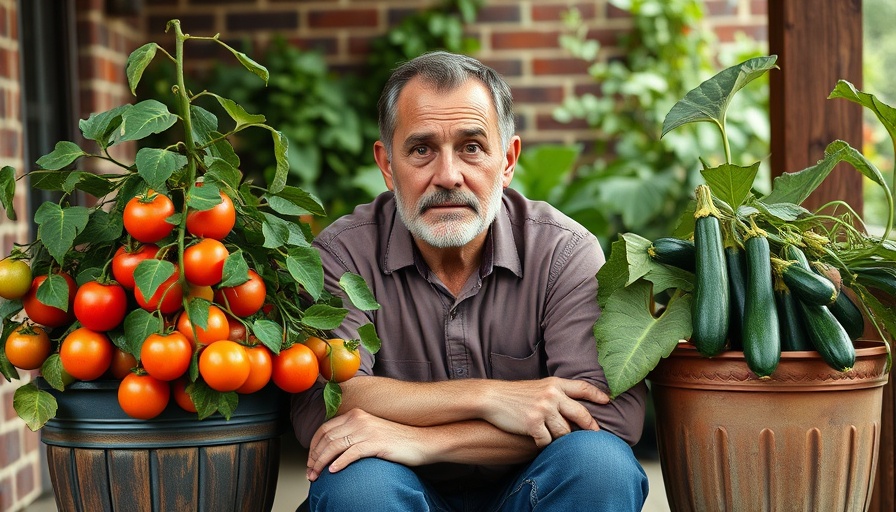
Container Gardening: A Beginner's Guide to Growing Vegetables
Are you looking to make the most of your outdoor space, or perhaps even transform your balcony into a lush vegetable haven? Container gardening is a fantastic way to grow your own produce, regardless of the size of your yard. Not only is it accessible and flexible, but it's also a rewarding activity that allows anyone—from beginner gardeners to seasoned pros—to cultivate flavorful vegetables right at home. Let's dig into the simple steps and tips that will help you cultivate a thriving vegetable garden in containers!
Why Choose Container Gardening?
Container gardening offers several benefits for urban gardeners or those with limited space. For starters, it allows you to control the soil quality more effectively, which is crucial for growing healthy vegetables. If you're living in an area with poor soil or contamination issues, container gardening can be a game-changer. Also, planting in pots makes watering easier—just use a simple watering can or garden hose to keep your plants hydrated. Plus, you can easily relocate the containers to bask in the sun or seek shade as plants need, making it a versatile option for diverse climates.
Choosing Your Containers: What You Need to Know
Selecting the right pots for your vegetables can impact their growth. Look for containers that are at least 12-14 inches deep, especially for root vegetables like carrots or potatoes. Make sure your containers have drainage holes to prevent waterlogging. Consider using materials like ceramic, plastic, or wood, each offering unique aesthetics and benefits. If you’re feeling creative, you can even repurpose old buckets or wooden crates to add character to your garden!
Essential Supplies for Your Container Garden
Before planting, gather some essential gardening supplies. You'll need high-quality potting soil, which has better drainage and nutrients than garden soil. Purchasing some gardening tools can make the process smoother—things like trowels, gardening gloves, and watering cans are invaluable. Don’t forget to stock up on fertilizer to provide your plants with the extra nutrients they need to flourish!
Vegetable Recommendations for Container Growth
As you're planning your container garden, consider vegetables that thrive in smaller spaces. Ideal choices include:
- Tomatoes: They require plenty of sunlight and don’t mind a little crowding, along with sturdy stakes for support.
- Peppers: Sweet and spicy varieties can flourish in pots, producing vibrant flowers before turning into delicious fruits.
- Leafy Greens: Spinach, lettuce, and kale are perfect for containers, growing fast and providing continual harvests throughout the season.
- Herbs: Basil, cilantro, and mint are wonderful additions to any small garden, enhancing your cooking with fresh flavors!
Watering: The Lifeblood of Your Garden
Efficient watering is crucial for container gardening. Since pots can dry out more quickly than in-ground gardens, check your plants daily. A rule of thumb is to water when the top inch of soil feels dry. When watering, try to saturate the soil thoroughly so that the roots can absorb enough moisture. If you’re unsure how much to use, a drip irrigation system can help automate the process, ensuring that your plants receive a steady supply of hydration without overdoing it.
Designing Your Container Garden for Visual Appeal
Container gardening isn’t just about function; it should also be visually inviting! Mix and match different plants, colors, and pot styles to create a vibrant aesthetic. Using garden design principles like height variation can add drama—position taller plants in the back and shorter ones in the front. Additionally, utilize decorative pots or garden accessories to enhance the visual appeal of your containers.
Tips for Long-Term Success and Sustainability
To ensure your container garden thrives season after season, adopt sustainable practices. Invest in organic gardening supplies and grow vegetables without harsh chemicals, benefiting both your health and the environment. Additionally, consider composting kitchen scraps to enrich your garden soil. Regularly readjust your garden layout based on how plants grow, and don’t hesitate to try fresh setups with each season!
Join the Gardening Community!
As you embark on your container gardening journey, remember that you're not alone. Many communities host gardening clubs and workshops where you can learn from others, share your experiences, and thrive together. This shared passion not only enhances your gardening skills but also fosters lasting friendships!
Container gardening is an incredibly rewarding venture—by following these tips and recommendations, you're just a few steps away from growing your very own vegetable haven. Start small, and watch as your garden grows along with your confidence!
 Add Row
Add Row  Add
Add 




Write A Comment